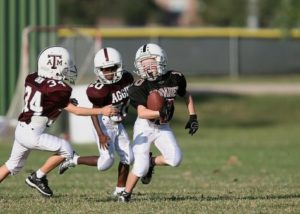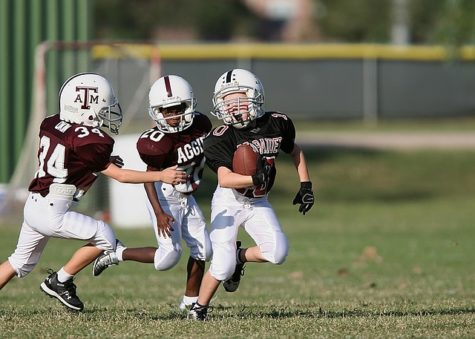BOSTON — Playing tackle football before the age of 12 could lead to an earlier onset of cognitive and emotional symptoms of Chronic Traumatic Encephalopathy (CTE), according to the findings of new study.
Researchers at the Boston University Medical School and the VA Boston Healthcare System analyzed 211 former football players who were diagnosed after death with CTE and other, similar neurodegenerative brain diseases. Researchers compiled data for the study through phone interviews with family and friends connected to individuals examined in the study. The interviews allowed the authors to assess when, if at all, symptoms of CTE first became noticeable in the players.

The authors found that players who started playing tackle football before the age of 12 saw cognitive, behavioral, and mood symptoms of CTE begin well before other players — an astounding average of 13 years earlier. The study showed that for every one year earlier the players started playing football than their peers, cognitive symptoms started to show 2.4 years earlier, and behavioral and mood symptoms 2.5 years earlier.
“Youth exposure to repetitive head impacts in tackle football may reduce one’s resiliency to brain diseases later in life, including, but not limited to CTE,” explains corresponding author Ann McKee, chief of Neuropathology at Boston VA Healthcare System and director of BU’s CTE Center, in a media release. “It makes common sense that children, whose brains are rapidly developing, should not be hitting their heads hundreds of times per season.”
Although earlier participation in tackle football caused symptoms of CTE to appear earlier, it did not seem to affect the overall severity of the disease over time.
Previous studies have connected youth tackle football with cognitive, emotional, and and behavioral disturbances later in life for professional and even former amateur football players. Former NFL players also showed a change in brain structure over time.
“While participation in sports has important health and social benefits, it is important to consider contact and collision sports separately and balance those benefits against potential later life neurological risks,” adds Michael Alosco, PhD, an assistant professor of neurology and an investigator at the BUAlzheimer’s Disease Center and the BU CTE Center.
Of the 211 deceased football players studied, 76 went on to play in amateur leagues and 135 had played professionally.
The full study was published in the journal Annals of Neurology.

Comments